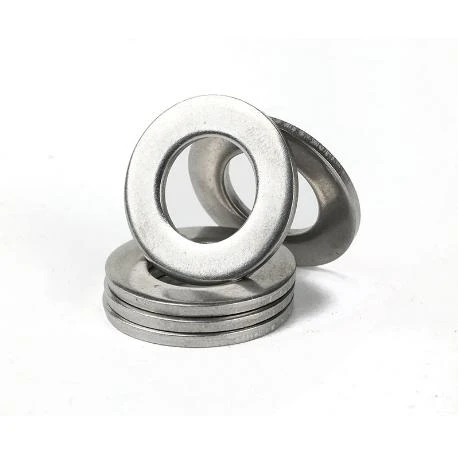

Understanding the Types and Applications of Threaded Fasteners for Various Industries
10月 . 22, 2024 13:30 Back to list
Understanding the Types and Applications of Threaded Fasteners for Various Industries
Understanding Threaded Fasteners A Key Component in Engineering and Construction
Threaded fasteners are essential components in the fields of engineering and construction, playing a critical role in the assembly of various structures, machinery, and everyday products. These simple yet ingenious devices are designed to hold two or more objects together, providing a secure and reliable connection. In this article, we will explore the types, applications, advantages, and considerations surrounding threaded fasteners.
What are Threaded Fasteners?
Threaded fasteners, commonly known as screws, bolts, nuts, and washers, are mechanical devices that utilize an external or internal thread to create a tight connection between parts. The thread is a helical ridge around a cylinder, allowing for rotation to tighten or loosen the fastener. The following are some of the most common types of threaded fasteners
1. Bolts These are external threaded fasteners that typically require a nut to secure them in place. They are available in various sizes and grades, making them suitable for a wide range of applications.
2. Screws Unlike bolts, screws can cut their own threads into materials during installation, making them versatile for fastening different materials, including wood, metal, and plastic.
3. Nuts These are internally threaded fasteners that fit onto a bolt, creating a secure joint when tightened.
4. Washers These flat discs are often used in conjunction with bolts and nuts to distribute the load and prevent damage to the material being fastened.
Applications of Threaded Fasteners
Threaded fasteners are ubiquitous across various industries. In construction, they are used to assemble structures, support systems, and facades. In the automotive sector, they are crucial for holding together engine components, chassis, and other critical systems. Aerospace applications rely heavily on high-strength fasteners to ensure the safety and reliability of aircraft.
Moreover, threaded fasteners are found in consumer products, from furniture assembly to electronic devices
. Their adaptability makes them invaluable across different segments.Advantages of Threaded Fasteners
threaded fasteners

1. Ease of Use One of the most significant advantages of threaded fasteners is their simplicity. They can be easily installed and removed with the appropriate tools, making maintenance straightforward.
2. Versatility Available in numerous sizes, materials, and thread designs, threaded fasteners can be tailored to meet specific requirements for various applications.
3. Reusability Unlike some bonding methods, such as welding, threaded fasteners can be reused multiple times without damaging the components they are securing.
4. Strength and Reliability When properly installed and selected, threaded fasteners can provide a strong and reliable connection, capable of withstanding significant forces and loads.
Considerations When Using Threaded Fasteners
While threaded fasteners offer many benefits, there are several considerations to keep in mind
1. Material Selection The material of the fastener should be compatible with the materials being joined. For example, using stainless steel fasteners in a corrosive environment can prevent rust and prolong the lifespan of the connection.
2. Torque Specifications Each fastener has specific torque requirements that must be adhered to in order to avoid stripping, breakage, or under-tightening.
3. Thread Pitch The thread pitch, or the distance between threads, can affect the fastening performance. Selecting the correct pitch is crucial for ensuring a secure fit.
4. Environmental Factors Factors such as temperature changes, moisture, and vibrations can influence the performance of threaded fasteners, so choosing the right type for the specific environment is important.
Conclusion
Threaded fasteners are a fundamental aspect of modern engineering and construction, offering versatility, ease of use, and reliability. Understanding their types, applications, and considerations can greatly enhance the effectiveness of assembly and maintenance processes across various industries. As technology evolves and new materials are developed, the role of threaded fasteners will continue to be indispensable in creating robust and efficient designs.
Latest news
-
Similarities and Differences Between Plain Washer and Spring Washer - Fastener Comparison Guide
NewsJun.10,2025
-
Effortless Installation Self-Drilling Window Screws - Fast, Secure, and Durable Fasteners
NewsJun.10,2025
-
Self Drilling Stucco Screws for Fast, Secure Installation Self Tapping & Self-Tapping Fasteners
NewsJun.10,2025
-
Premium Hot Dipped Galvanized Self Tapping Screws - Durable Corrosion Resistance
NewsJun.09,2025
-
Discover M12 Weld Stud Benefits & Applications Guide
NewsJun.09,2025
-
M25 Stainless Steel Washers High-Durability Fasteners for Corrosion Resistance
NewsJun.09,2025

